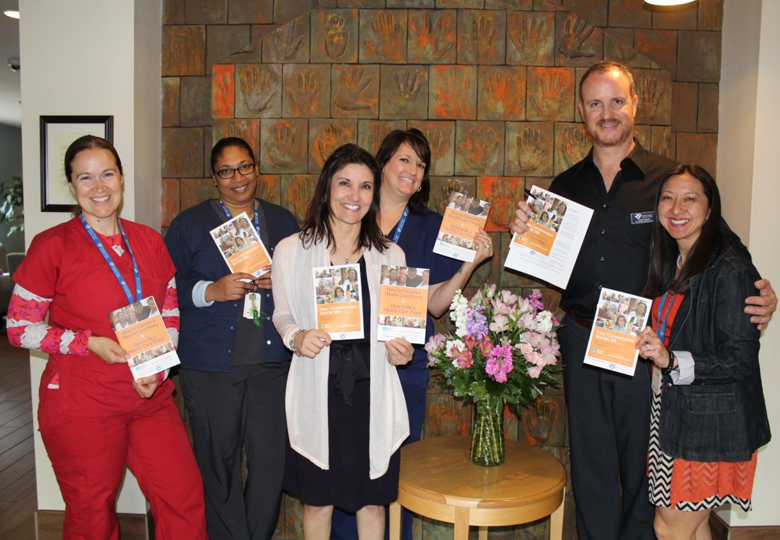
The GIFT Project
The GIFT Project – Giving Instructions for Tomorrow
Thinking and talking about what kind of health care we might want, if there comes a time we can’t speak for ourselves, is the greatest gift we can give to those we love.
The GIFT Project provides a nurse or other clinicians to your organization or place of business to present sessions on advance care planning. All sessions are presented free of charge.
It’s Time to Talk:
Advance Care Planning
This hour-long session includes how to:
- Identify your wishes
- Decide who you would like to speak for you
- Discuss your wishes with loved ones
- Basics of advance directives
It’s Time to Act:
Understanding & Completing the Advance Directive Forms
This hour-long session includes a thorough examination of advance directives:
- Medical Power of Attorney
- Living Will
- Out of Hospital DNR Order
- Q & A about any advance care planning topic
Many of us have two fears when it comes to end of life: that we will not get the care we need, and that we will get the care we do not want. These interactive sessions empower participants to identify what matters most to them and take steps to ensure their wishes are honored.
The GIFT Project can provide Advance Care Planning Sessions or a screening of the documentary “Being Mortal” to your place of business, congregation, civic group, adult living facility, neighborhood meeting or book club.
“Being Mortal” Screenings
Based on the best-selling book by surgeon Atul Gawande, PBS Frontline’s “Being Mortal” explores the relationship between patients facing a serious illness and their doctors. When Dr. Gawande’s own father gets cancer, his search for answers about how to best care for the dying becomes a personal quest.
After each screening attendees can participate in a guided conversation on how to take concrete steps to identify and communicate wishes about end-of-life goals and preferences.
Watch a short trailer of the film here.
For more information or to arrange for a session, please contact Shirley Price or call her at (512) 342-4789.
The GIFT Project is made possible by a generous grant from the St. David’s Foundation.
Consider the Facts
- More than 90% of people believe it’s important to talk about their loved ones’ and their own wishes for end-of-life care.
Fewer than 30% of people have actually done it. - 70% of people say they would prefer to die at home.
70% die in a hospital, nursing home, or long-term-care facility. - 80% of people say that if seriously ill, they would want to talk to their doctor about end-of-life care.
Only 7% report having had this conversation. - 82% of people say it’s important to put their wishes in writing.
23% have actually done so.
Having the Conversation
Communication is the single most important step in health care planning. Making your wishes known is one of the most generous gifts you can give to a loved one. When you’re ready to have the conversation, think about the basics:
- Who do you want to talk to? Who do you trust to speak for you?
- When would be a good time to talk — the next big holiday, a family meal, an evening phone call?
- Where would you feel comfortable talking – at the kitchen table, a restaurant, on a drive or walk?
- What do you want to be sure to say?
Conversation Starters:
- “I love you and I want to talk about something important to me.”
- “I need your help with something.”
- “I was remembering the way [Aunt June] died, and it got me thinking…”
- “Even though I’m okay right now, I want to be prepared.”
- “I need to think about the future. Will you help me?”
- “I just answered some questions about how I want the end of my life to be. I want you to see my answers, and I’m wondering what your answers would be.”





